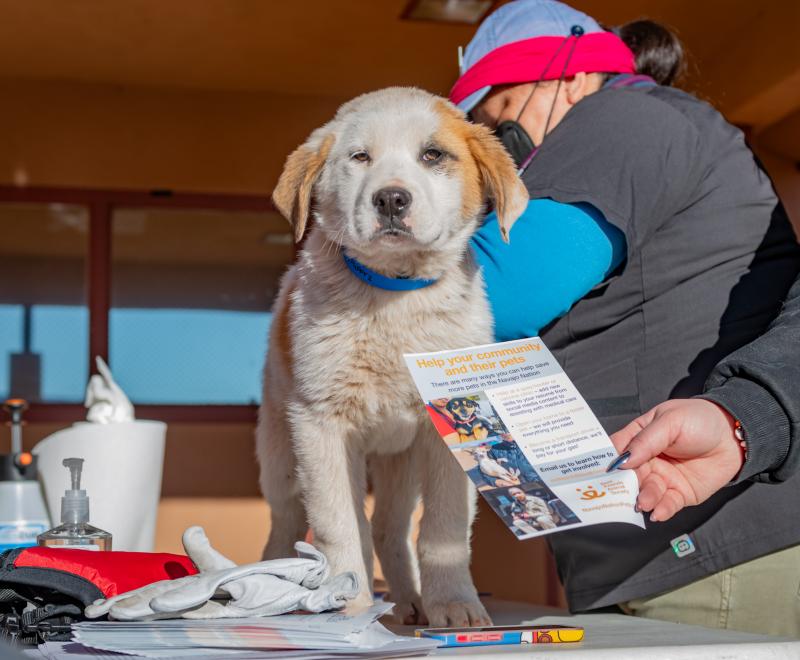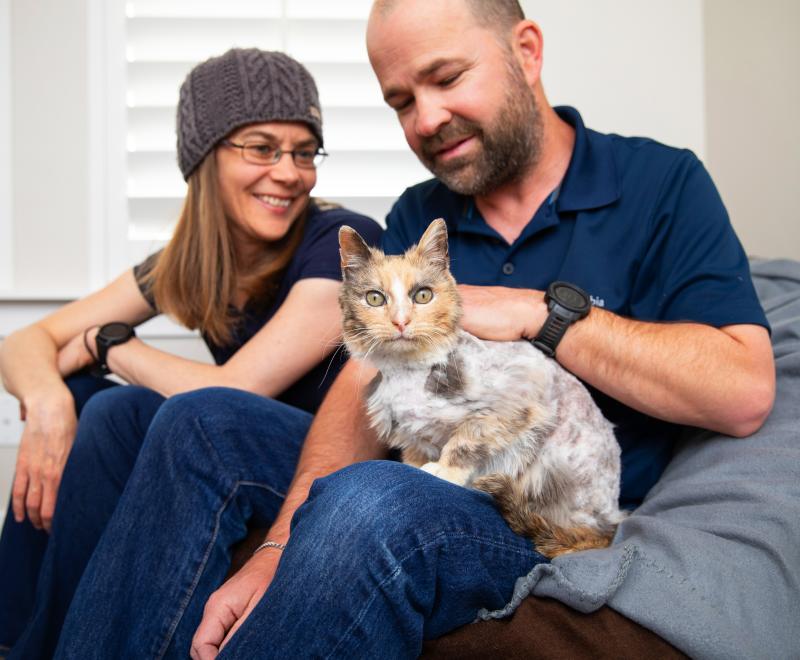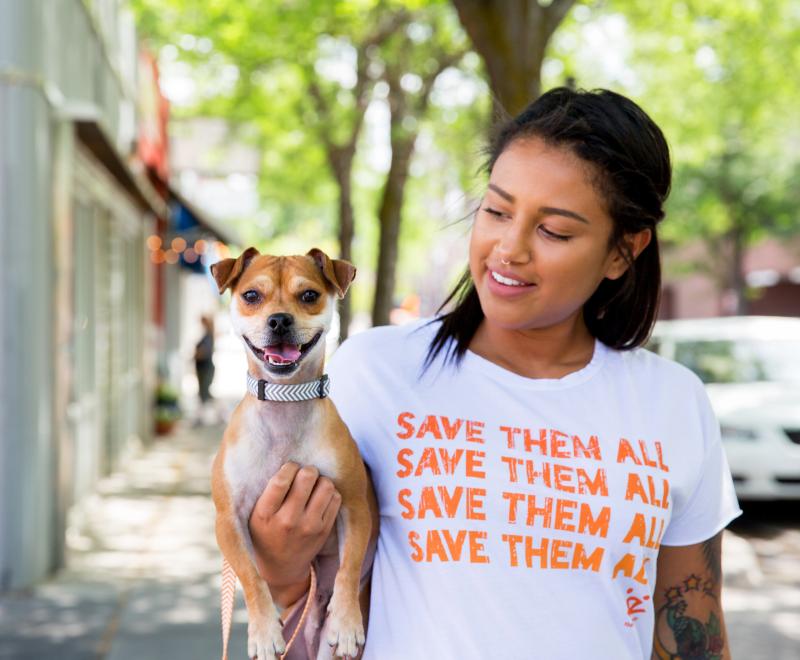Mobile clinic brings vet care to pets on Navajo Nation

When the Best Friends mobile clinic rolled into Tuba City, Arizona, it wasn’t just another day. It was Chico the puppy’s opportunity for a quick checkup, neuter surgery, and a chance for a healthier future — all with a side of kisses. The mobile clinic is part of a collaborative effort to provide low-cost spay/neuter surgeries, vaccinations, and medical care to pets on the Navajo Nation.
“Like many communities across the country, the Navajo Nation really has a veterinarian shortage,” explains Michelle Weaver, Best Friends Animal Sanctuary outreach director. “There are only a handful of vets working within the Navajo Nation, which is about the size of West Virginia. So we made the decision to build our own mobile clinic to increase services and add to what already exists.”
The mobile clinic team is focused on increasing lifesaving efforts at shelters on the Navajo Nation by collaborating with animal control, local leaders, animal welfare programs, and other organizations to find solutions to the large number of free-roaming dogs and cats.
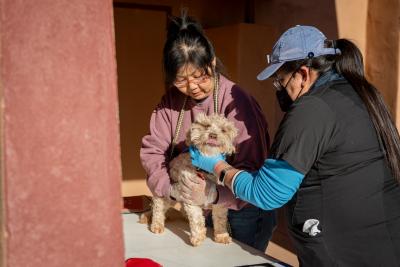
Opening worlds
Since launching in January 2024, the mobile clinic has provided more than 3,000 spay/neuter surgeries, vaccinations, and wellness exams to pets across the Navajo Nation. The clinic’s impact is due, in part, to the kindness and dedication of supporters like Marty and Brenda Winnick. The Winnicks generously funded its launch and volunteered at several clinics throughout the year.
[Navajo Nation residents go the extra mile for pets]
“It opened a whole new world to us,” says Brenda. “We’d never been to a spay and neuter clinic. We learned how to assist with cat recovery, how to sterilize surgical instruments, and watched numerous surgeries. It’s been an incredible experience.”
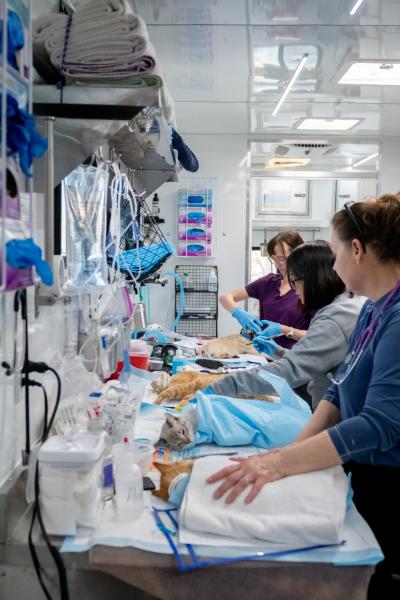
Tail-wagging care
The Winnicks’ hands-on experience highlights the dedication and care that defines the work that happens in the mobile clinic, where pets like Chico receive top-notch treatment. The clinic is a fully functional, stand-alone facility designed to accommodate pets of all sizes.
“It can handle any animal on its own,” says Michelle. “However, utilizing larger spaces like gyms or chapter houses allows us to serve even more pets, significantly increasing our capacity to help.”
These larger spaces are often used to care for larger animals, while smaller patients like Chico are treated in the mobile clinic.
[New veterinary resources for pets in Navajo Nation]
After a quick sedation, Chico’s neuter surgery was completed in minutes. As he woke up from his slumber in the cozy, monitored recovery area, his tongue seemed to have a mind of its own. It refused to roll back into his mouth. After a few tries, he successfully corralled his wayward tongue and was soon back in the arms of his family, tongue firmly back inside his mouth (except for a few kisses, of course).
“The work we’re doing with the mobile clinic, along with the efforts of other organizations bringing services into the community, is all about supporting the community and helping veterinarians reach as many people as possible,” says Michelle. “We collaborate with local veterinarians and other organizations to make the greatest impact.”
Thanks to this collaborative effort, pets like Chico are getting the care they need to live healthier, happier lives, and their families can breathe a little easier knowing help is never too far away.
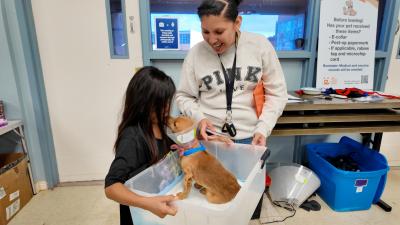
Let's make every shelter and every community no-kill in 2025
Our goal at Best Friends is to support all animal shelters in the U.S. in reaching no-kill in 2025. No-kill means saving every dog and cat in a shelter who can be saved, accounting for community safety and good quality of life for pets.
Shelter staff can’t do it alone. Saving animals in shelters is everyone’s responsibility, and it takes support and participation from the community. No-kill is possible when we work together thoughtfully, honestly, and collaboratively.
